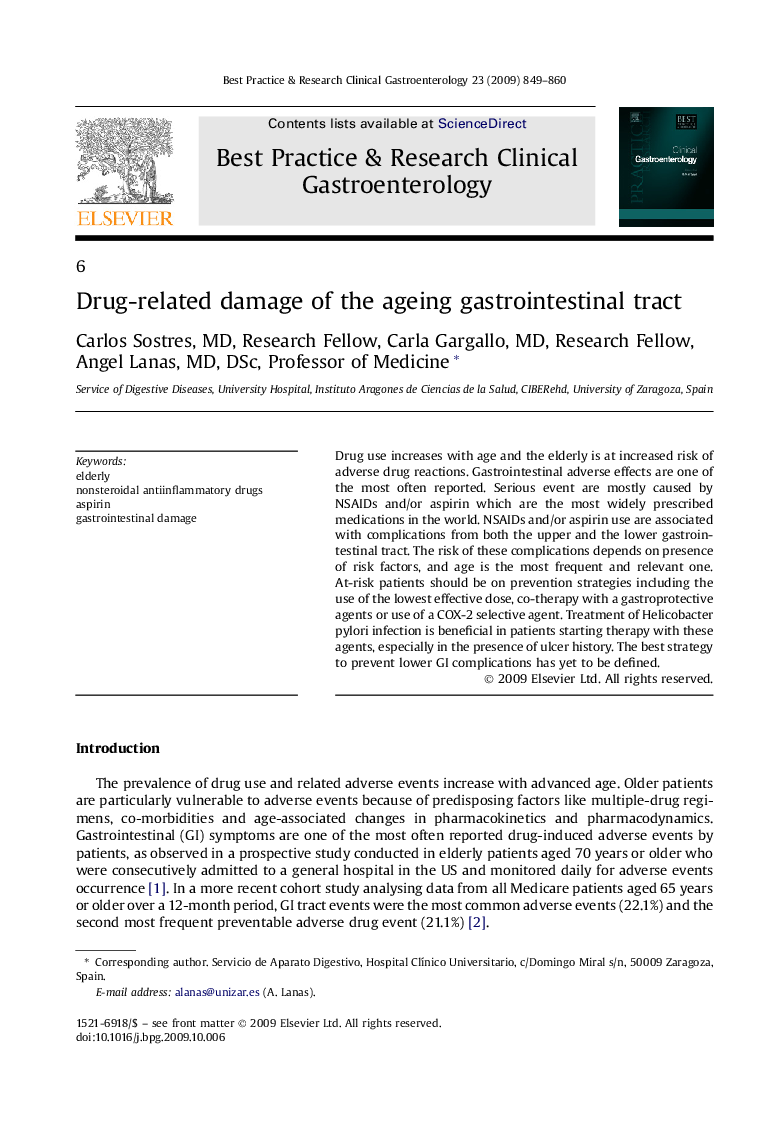| Article ID | Journal | Published Year | Pages | File Type |
|---|---|---|---|---|
| 3254483 | Best Practice & Research Clinical Gastroenterology | 2009 | 12 Pages |
Drug use increases with age and the elderly is at increased risk of adverse drug reactions. Gastrointestinal adverse effects are one of the most often reported. Serious event are mostly caused by NSAIDs and/or aspirin which are the most widely prescribed medications in the world. NSAIDs and/or aspirin use are associated with complications from both the upper and the lower gastrointestinal tract. The risk of these complications depends on presence of risk factors, and age is the most frequent and relevant one. At-risk patients should be on prevention strategies including the use of the lowest effective dose, co-therapy with a gastroprotective agents or use of a COX-2 selective agent. Treatment of Helicobacter pylori infection is beneficial in patients starting therapy with these agents, especially in the presence of ulcer history. The best strategy to prevent lower GI complications has yet to be defined.
